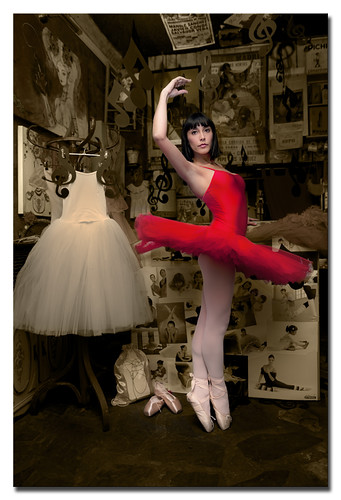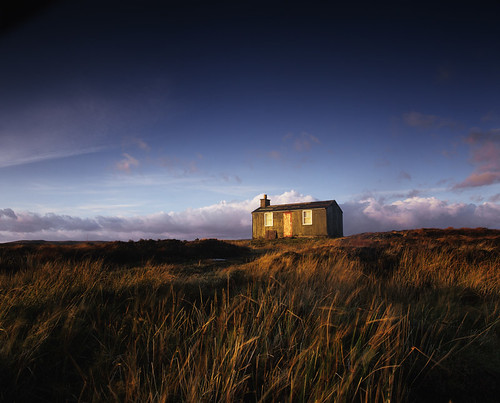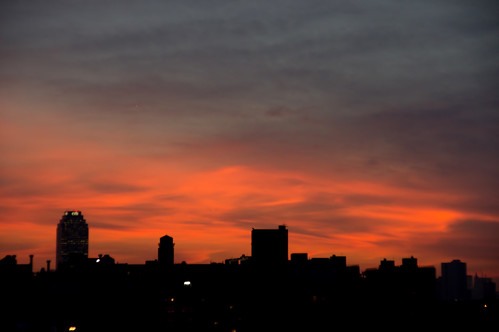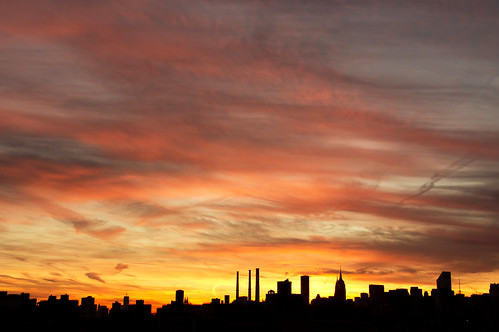Saturday, December 31, 2011
Cult of Mac reports that in February of this year, bad publicity was at an all-time high surrounding the conditions and suicides at the Chinese factory Foxconn, Apple’s largest supplier. Apple Co-Founder Steve Wozniak was apparently moved to tears by the story as told by Mike Daisey when he saw the show, and urged Tim Cook, Apple’s Acting CEO to see it as well, saying “I will never be the same after seeing that show.” [Full disclosure: this list was created on two Macbooks, with some side research on one iPad, after tweeting to one another via two iPhones.]
We’re not surprised by Wozniak’s reaction to Daisey’s performance. Daisey has appeared on a number of 2011 lists across North America, and for the New York Times list of Cleverest Theatrical Moments a category was created for “most remarkable storyteller who isn’t Mike Daisey”. Daisey was a definite influence on our co-production of You Should Have Stayed Home at SummerWorks this summer, and we hope he’ll come to Toronto soon.
Friday, December 30, 2011
Do people still suffer from periods of boredom even with computers, smart phones and tablets to occupy them endlessly? There’s also television, of course, which in homes of many Americans is on twenty-four hours a day, making it harder and harder to find a quiet place to sit and think. Even neighborhood bars, the old refuge of introspective loners, now have huge TV screens alternating between sports and chatter to divert them from their thoughts. As soon as college students are out of class, cell phones, and iPods materialize in their hands, requiring full concentration and making them instantly oblivious of their surroundings. I imagine Romeo and Juliet would send text messages to each other today as they strolled around Verona, though I find it hard to picture Hamlet advising Ophelia to betake herself to a nunnery.
These and other thoughts came to me as I sat in a dark house for three days in the aftermath of Hurricane Irene. Being without lights and water is a fairly common experience for those of us who live in rural areas on roads lined with old trees. Every major rainstorm or snowstorm is almost certain to bring down the lines, which, because of the relative scarcity of population, are a low priority for the power company to fix. We use oil lamps and most often candles, so our evenings around the dining room table resemble séances. We sit with our heads bowed as if trying to summon spirits, while in truth struggling to see what’s on our dinner plates. Being temporarily unable to use the technology we’ve grown dependent on to inform ourselves about the rest of the world, communicate with others, and pass the time, is a reminder of our alarming dependence on them. “Nights are so boring!” my neighbors kept repeating. Our days were not much better, with overcast skies that made it even difficult to read indoors. All of this reminded me of the days of my youth when my family, like so many others, lived in a monastic solitude when the weather was bad, since we had no television. It wasn’t in church, but on dark autumn days and winter nights that I had an inkling of what they meant when they spoke about eternity. Everyone read in order to escape boredom. I had friends so addicted to books, their parents were convinced they were going crazy with so many strange stories and ideas running like fever through their brains, not to mention becoming hard of hearing, after failing to perform the simplest household chores like letting the cat out.
Thursday, December 29, 2011
Wednesday, December 28, 2011
But it’s an impossible role in an impossible movie that has no reason for being other than as another pop-culture palliative for a trauma it can’t bear to face. In truth, “Extremely Loud & Incredibly Close” isn’t about Sept. 11. It’s about the impulse to drain that day of its specificity and turn it into yet another wellspring of generic emotions: sadness, loneliness, happiness. This is how kitsch works. It exploits familiar images, be they puppies or babies — or, as in the case of this movie, the twin towers — and tries to make us feel good, even virtuous, simply about feeling. And, yes, you may cry, but when tears are milked as they are here, the truer response should be rage.
Tuesday, December 27, 2011

The Big Lie - The Daily Beast:
I had my doubts from the beginning. A few months after I started to work downtown, I ran into an old friend from college and before, a man later to become one of New York’s most esteemed writers and editors.
“So,” he asked, “how do you like what you’re doing now?”
“I like it quite a lot,” I said. And this was true: these were new frontiers for me, the pace was lively, the money was good enough ($6,500 a year), and there was so much to learn. But there was one aspect of Wall Street that I found morally confusing if not distasteful: “There’s one thing that bothers me, though. It’s this: on the one hand the New York Stock Exchange has sent its president, the estimable G. Keith Funston, out into the countryside, supported by an expensive, extensive advertising campaign, to exhort the proletariat to Own your share of America! As if buying 50 shares of IBM or GM in 1961 is as much of a civic duty as buying a $100 war bond in 1943.”
I then added, “But here’s the thing. At the same time as Funston’s out there doing his thing, if you ask any veteran Wall Street pro how the Street works, the first thing he’ll tell you is: The public is always wrong. Always.” I paused to let that sink in, then confessed, “I have to tell you, I have trouble squaring that circle.”
The government has been using its secrecy system in absurd ways for decades, but 2011 was particularly egregious. Here are a few examples:
Government report concludes the government classified 77 million documents in 2010, a 40% increase on the year before. The number of people with security clearances exceeded 4.2. million, more people than the city of Los Angeles.
Government tells Air Force families, including their kids, it’s illegal to read WikiLeaks. The month before, the Air Force barred its service members fighting abroad from reading the New York Times—the country’s Paper of Record.
Lawyers for Guantanamo detainees were barred from reading the WikiLeaks Guantanamo files, despite their contents being plastered on the front page of the New York Times.
President Obama refuses to say the words “drone” or “C.I.A” despite the C.I.A. drone program being on the front pages of the nation’s newspapers every day.
Monday, December 26, 2011
Saturday, December 24, 2011
What most users don’t know is that the new features being introduced are all centered around increasing the value of Facebook to advertisers, to the point where Facebook representatives have been selling the idea that Timeline is actually about re-conceptualizing users around their consumer preferences, or as they put it, “brands are now an essential part of people’s identities.”
The name itself is cleverly designed to conceal the fact that your profile no longer arranges information chronologically. Yes, things are laid out by year and by month. But, when it comes to what’s displayed to your social circle at any given time, other metrics, including direct payments to Facebook itself, will now influence the ranking and placement of stories. This payola will be a crucial part of the graph rank, the new metric for placement that the social network uses to determine what appears on your profile.
Friday, December 23, 2011
American autoworkers are constantly told that high-wage work is an unsustainable relic in the face of a hyper-competitive, globalized marketplace. Apostles of neo-liberal economic theory — both in the public and private sectors — have stressed the message that worker adaptation is necessary to survive. Indeed, Steven Rattner, President Obama’s “car czar” during the restructuring of General Motors and Chrysler in early 2009, spoke last week of his regret that the federal government had not required the United Auto workers to take a wage cut at that time to enhance the competitiveness of those companies, comments similar to those he made in a recently published book (after the outcry created by last week’s remarks, Rattner yesterday backed away from them, though reiterating his view that more “shared sacrifice” would have bolstered American competitiveness).
Governments, too, the globalists have contended, should not think that markets can or should be controlled. As Remapping Debate reported earlier this year in an article about the role of large consulting firms in the promotion of the notion that national policy can and must allow global capital a free hand, McKinsey & Co. was already arguing back in 1994 that “a national government has no choice but to move forward to embrace the global capital market unless it wants to harm its own citizens, its economy and its own purposes.”
But the case of German automakers — BMW, Daimler, and Volkswagen — tells a different story. Each company produces vehicles not only in Germany, but also in “transplant” factories in the U.S. The former are characterized by high wages and high union membership; the U.S. plants pay lower wages and are located in so-called “right-to-work” (anti-union) states.
It turns out that “inevitability” has nothing to do with the differing conditions; the salient difference is that, in Germany, the automakers operate within an environment that precludes a race to the bottom; in the U.S., they operate within an environment that encourages such a race.
Thursday, December 22, 2011
Promoting a book is . . . well, good holy hell, it's just insane. It's so much fun, and it makes you completely mentally ill. Try talking about yourself non-stop for two months, taking breaks only to switch time zones by plane, train, or automobile, and you've got the idea. It's more overwhelming than I ever would have imagined. After nearly a month on the road, I flew home with about 16 hours to kill before I was scheduled to read at Elliott Bay Book Company. During my time away, I had been on two continents, oscillating between anxiety and exhilaration, enjoying too little sleep and too much of the kind of diet I consume while traveling (whatever protein I can find to avoid passing out; red wine & coffee) and now I arrived at Elliott Bay hoping I would at least remember the name of my own book and my own self, should anyone ask me.
Wednesday, December 21, 2011
It takes confidence to sit in front of an audience, armed with a few pages of notes and one glass of water, wearing clothes you may have slept in, using your rubbery face as your primary prop, to discuss warmly but ultimately damningly, for nearly two hours, a man you never met. A man thought of as a rare contemporary hero. A man who died five weeks earlier. What gives Mike Daisey, a veteran monologist, the confidence and endurance to perform The Agony and Ecstasy of Steve Jobs daily is, I suspect, justice. The jumpy, chilling, riotous monologue has the expected: scenes from the life of Steve Jobs and Apple; hilarious set pieces about Daisey’s technology geekishness. But its heart lies in Daisey’s disillusionment from his “religion” of Apple after years researching how Apple products are made, most upsettingly by interviewing workers outside the Shenzhen, China factory of Foxconn, a major manufacturer of Apple products. Daisey witnessed the company that produced his objects of identity be ruthlessly indifferent to the lives of the workers making them. His indictment is personal, directed at Jobs, but it leaves no one innocent. After the performance, I needed to run an errand, to buy a toaster. But the stores—buying and selling—sickened me. Toast would have to wait.
Monday, December 19, 2011
Friday, December 16, 2011
Louis C.K.: This is pre-mortem.
AVC: Does it worry you when things seem to be going too well?
LCK: Not at all. I expect there to be a cycle and to be back out on the street again at some point. That’s the nature of it. The good thing about living that cycle a lot, like I have, is that you survive the downside, and make use of the downside, so you don’t fear it anymore. I’m not worried about that. I’m enjoying the work while I get it right now. This is really great, and I have high hopes for [Louie], but not expectations. [Laughs.] Actually, in this case, I do, but I’ve had high expectations before, and so much of it isn’t up to me that I’m just enjoying the work. If I lose any of the stuff I’m getting right now, I’ve always got the road. Stand-up makes you so autonomous and self-sufficient that it really helps with that part of show business.
AVC: You have complete control.
LCK: I can go out on the road. I can make money. I can do what I do in its purest form without asking anybody for permission. You can’t cancel my stand-up tours. It’s impossible. There’s too many separate bosses. There is no “bosses.” I rent these theaters now. When I worked the clubs, it was very different. Pretty much you needed to please the Improvs, but if I get cancelled, I can put together a stand-up tour and go on the road and continue generating. I don’t worry that way anymore. I don’t know what it’s like to be an actor, where if your show gets cancelled, really you’re just a bum. [Laughs.] It must be really awful. You can’t go out and do a little acting, you know what I mean? If I’m not on tour, I can run down to the comedy club and do a little stand-up. If you’re an actor, you can’t go—I guess there’s forms of it.
Saturday, December 10, 2011
Friday, December 09, 2011
Bloomberg insisted that there was no media blackout during the early morning raid: "We didn't keep anybody from reporting, you just had to stand to the side. You don't have a right as a press person to stand in the way just in the interest of getting the story...the police [showed] amazing restraint. This is the greatest police department in the world. The number of times police fire their weapons here is so much less than any other police department."
We reported at the time of the raid that an NPR reporter, a New York Times reporter, and a City Councilmember were all arrested. A New York Post reporter was allegedly put in a "choke hold" by the police, an NBC reporter's press pass was reportedly confiscated, and some reporters and protesters were hit with pepper spray during skirmishes with police after the eviction. Bloomberg claimed at the time that reporters were only asked to "stand to the side"—it may have been literally true, but many reporters said the "side" in this case was so far away from the park that reporting the eviction in any serious way proved seriously difficult.
Later, the Society of Professional Journalists condemned the city's actions and said the Mayor's efforts insinuated what "would seem to be a strategic decision to cloak potentially volatile police activity from the public."
Thursday, December 08, 2011
"Time to stop occupying and start doing!" someone threw at me recently on Facebook.
With all due respect and even acknowledging Occupy Seattle's flaws, I call bullshit: Occupying is doing. And there's more than one way to Occupy: If you didn't like the ragtag Westlake occupation and you don't like the SCCC increasingly homeless-encampment occupation (which, hey, if you don't like it, your chief problem shouldn't be with Occupy but with homelessness), so what? These two Occupy Seattles already were different from each other, and the next incarnation has yet to be written. It looks like Occupy Seattle's days are numbered at SCCC, but I believe the tactic of physical occupation of spaces still has plenty of life in it.
It also has inspiring history in Seattle.
Wednesday, December 07, 2011
In a "remember me, three years ago?" speech in Kansas yesterday, President Obama told the crowd, "This country succeeds when everyone gets a fair shot, when everyone does their fair share and when everyone plays by the same rules." A new report [pdf] from the non-profit organization Public Campaign shows that 30 of the country's largest corporations—including GE, Wells Fargo, Verizon, and Fed Ex—paid more to lobby Congress from 2008 through 2010 than they did in federal income taxes. What country was the president referring to?
Of the 30 companies, only one actually paid any federal income taxes: FedEx.
Tuesday, December 06, 2011
Mike Daisey stood up around midnight. “On the subway up to the show,” Daisey mused he had no idea of how many people he would be performing for. He confessed he had no idea what he was getting into. “And I’m delighted you’re here,” he explained, with a humble gentleness, as the crowd cheered. He immediately established a rapport with the crowd. To hold a space really is about connecting with the crowd and hearing what they need, what are their concerns, etc. . “Its an amazing thing to try to hold a space. Cause that’s what we do in the theater, we hold spaces. But one of the tricks they never tell you is, to not hold it at all, but to give it back to the people, to give it back to the audience. They are the source, the thought, the source. You don’t do anything. You take what you are given, you mediate that and give it back to them.” His monologue really was a highpoint. In a way, he was talking about what Talen was talking about, the links between audience and self, community and city, the collective experience of stories, dreams, unconscious desires, reflections on the tragicomic continuum of human experience, all of which is necessary to truly say we are living democratically. It was that contract of experience which produced Kusher in Times Square out of the AIDS crisis.
Monday, December 05, 2011
“People say the economy has problems,” Mr. Carvey said in a robotic, high-pitched whine in an Oval Office address. “Try telling it to that guy out there in Oregon who is working on that thing, doing it, going round and round in the whole area out there.”
Most of Mr. Carvey’s sketches were solitary speeches delivered at a desk, with no gimmicks and relatively few jokes. The humor was rooted in character. What made Mr. Carvey such a thrillingly adventurous and funny performer is that he kept pushing his cartoonish character in more flamboyant directions.
His elaborate hand gestures became so ornamental that they looked like something out of Peking Opera. As he refined the character, his language grew vaguer and vaguer, an evolution that was actually an articulate comment on the decline of clarity in political rhetoric. Sentences turned into fragments, then words turned into mumblings. “Not going to do it” became “na ga da.” It was so outlandish that it appeared less scathing than it actually was. Mr. Bush, who appeared on the show, seemed genuinely to like it.
Perhaps the most powerful moment came just before midnight on Friday when Mike Daisey, the monologist and author who is currently appearing in "The Agony and the Ecstasy of Steve Jobs" at the Public Theater, delivered an impassioned speech about consumerism, Mayor Bloomberg and Occupy Wall Street. An enormous crowd of people formed as he took the stage.
"I'm very sympathetic to the desire to not only have there be protests, but also protests that incorporate an artistic movement and incorporate the skills of the artistic community," Daisey told The Huffington Post on Saturday between performances of his show at the Public. "And I think that it's a really exciting thing to see the arts become civically and politically engaged. I'm just intensely interested in all of it."
"I think it's an important moment for people to stand up," Daisey continued. "There's a huge number of people in New York who profess belief systems that coincide with or overlap with the concerns of the protesters, but they don't feel sufficiently stirred yet to go and have a conversation. And if they want to have a conversation, if people want to talk about the nature of equality and the lack of equality in this country, and if they want to talk about economic power and about corporatism, this is a platform to talk about those things. They're all topics that I've been talking about for years in my monologues."
"I think it's a really crucial time, and the more and more people sort of stand on the sidelines, gawking, the more they are going to find that they're on the wrong side of history."
Sunday, December 04, 2011
Imagine you walked into a bank, applied for a personal line of credit, and filled out all the paperwork claiming to have no debts and an income of $200,000 per year. The bank, based on these representations, extended you the line of credit. Then, three years later, after fighting disclosure all the way, you were forced by a court to tell the truth: At the time you made the statements to the bank, you actually were unemployed, you had a $1 million mortgage on your house on which you had failed to make payments for six months, and you hadn’t paid even the minimum on your credit-card bills for three months. Do you think the bank would just say: Never mind, don’t worry about it? Of course not. Whether or not you had paid back the personal line of credit, three FBI agents would be at your door within hours.
Yet this is exactly what the major American banks have done to the public. During the deepest, darkest period of the financial cataclysm, the CEOs of major banks maintained in statements to the public, to the market at large, and to their own shareholders that the banks were in good financial shape, didn’t want to take TARP funds, and that the regulatory framework governing our banking system should not be altered. Trust us, they said. Yet, unknown to the public and the Congress, these same banks had been borrowing massive amounts from the government to remain afloat. The total numbers are staggering: $7.7 trillion of credit—one-half of the GDP of the entire nation. $460 billion was lent to J.P. Morgan, Bank of America, Citibank, Wells Fargo, Goldman Sachs, and Morgan Stanley alone—without anybody other than a few select officials at the Fed and the Treasury knowing. This was perhaps the single most massive allocation of capital from public to private hands in our history, and nobody was told. This was not TARP: This was secret Fed lending. And although it has since been repaid, it is clear why the banks didn’t want us to know about it: They didn’t want to admit the magnitude of their financial distress.
The Swiss government commissioned a study on the impact of copyright-infringing downloading. The independent study concluded that downloaders use the money they spend to buy more legitimate entertainment products. So they've concluded to maintain Switzerland's extant copyright law, which makes downloading for personal use legal. It's a rare victory for evidence-based policy in a world dominated by shrill assertions of lost jobs and revenue, backed by funny-number "statistics" from industry-commissioned researchers.
Saturday, December 03, 2011

The Dark Side of Enlightenment:
Joyce says that the initial audience reactions were enthusiastic but befuddled—people didn't know what it was, but they knew that they liked it. That makes sense—A Pale and Lovely Place can be simultaneously, confoundingly savage and charming. Sometimes the text is menacing and the delivery is light, as in the story of the huckster chasing a lost little boy down an alleyway. Sometimes the text is light but the delivery is menacing: "So just remember, boys and girls, you're important—and everybody wants to be your special, special friend!"
It's not all about Christianity, Faust, and the Devil. Sometimes, Joyce's description of the Covenant sounds like a promise of enlightenment in the language of yoga, Buddhism, and the other bits of Asian theology that have floated across the Pacific and into America's culture of self-improvement. In one passage, Joyce tells us that we "often confuse desire with reality" and cheerfully suggests an exercise to release us from the chains of "desire's bondage":
For the children in tonight's audience, I encourage you to try this at home. Find a friend or nearby family member, and ask them to lie prostrate on a bed of nails or sharp glass shards. Then begin to lightly pound on their back with a hammer or some similarly heavy, blunt object. As they scream or cry, imagine some thing or person you truly desire, especially a desire that may be difficult or impossible to attain—true happiness, for example, or a full head of real hair—and hold that vision in your mind, mingling it and mixing it with the screams of your beloved friend or family member. This type of activity is guaranteed by the Covenant to rid you of the desire forever.
A Pale and Lovely Place is something to be befuddled by and enthusiastic about, a short but intense trip through the moral looking-glass, where it's hard to tell the good from the evil.
Friday, December 02, 2011
The Bigger Picture Behind Apple's China Problem | GreenBiz.com:
But othey don't. Suppliers are notorious for faking pay records and gaming the inspectors. And Apple's track record makes clear that conditions are not safe and just.
Cook also boasts that Apple offers free continuing education programs at factories in China, saying that "more than 60,000 workers have enrolled in classes to learn business, entrepreneurial skills or English." But are they earning more money? Working fewer hours? Safer?
See the problem here? Apple and other companies are measuring their actions, and not their impact. There's a big difference between the two. It's reason why we don't know whether the people who make the iPad are better or worse off than those who make an HP printer or a Microsoft XBox.
"Companies report on their activities -- audits conducted, training delivered -- but don't tell us what impact that effort has achieved for workers," Dan says. "As a result, while companies are getting better at reporting on their activities, we don't have a meaningful way to compare one company to another." We'd know more if companies reported on the wages that workers are paid, the number of workplace injuries, turnover rates, environmental discharges and the like.
On December 2, 2011 New York artists will introduce tourists and New Yorkers going to Broadway shows or shopping themselves into debt to the idea of occupation as creative resistance with non-stop free performances. Occupy Broadway will set up in a privately owned public space (POPS) near Times Square, turning once blandified space into a space for cultural production.
“The city created privately owned public spaces for the people, in exchange for bonus height and bulk in these spaces,” notes Benjamin Shepard, co-author of The Beach Beneath the Streets. “As State Judge Stallman made clear last week, the people have a right to be in these spaces 24 hours a day.”
In recent weeks, there has been a push to tramp on our rights to public assembly, public space and by extension democracy itself. In response, Occupy Broadway joins a global struggle using occupation as a form of creative resistance. Occupations are spreading around the world and around New York City, even uotown. Bloomberg Beware, you take our park, Now Liberty Park is everywhere! In a time when downtown theaters are rapidly losing their spaces, being turned into high-end fashion stores, Occupy Broadway is a symbolic attempt to regain the space of theatre as an accessible, popular art form, bringing it back to where it all started - in a public space, for the common citizen.
I refused to participate as a performer because what I anticipated would be a few hours of creative labor, a meal, and the chance to network with like-minded colleagues turned out to be an unfairly remunerated job. I was expected to lie naked and speechless on a slowly rotating table, starting from before guests arrived and lasting until after they left (a total of nearly four hours). I was expected to ignore (by staying in what Abramovic refers to as "performance mode") any potential physical or verbal harassment while performing. I was expected to commit to fifteen hours of rehearsal time, and sign a Non-Disclosure Agreement stating that if I spoke to anyone about what happened in the audition I was liable for being sued by Bounce Events, Marketing, Inc., the event’s producer, for a sum of $1 million dollars plus attorney fees.
Wednesday, November 30, 2011
A would-be saboteur arrested today at the Large Hadron Collider in Switzerland made the bizarre claim that he was from the future. Eloi Cole, a strangely dressed young man, said that he had travelled back in time to prevent the LHC from destroying the world.
The LHC successfully collided particles at record force earlier this week, a milestone Mr Cole was attempting to disrupt by stopping supplies of Mountain Dew to the experiment's vending machines. He also claimed responsibility for the infamous baguette sabotage in November last year.
Mr Cole was seized by Swiss police after CERN security guards spotted him rooting around in bins. He explained that he was looking for fuel for his 'time machine power unit', a device that resembled a kitchen blender.
Police said Mr Cole, who was wearing a bow tie and rather too much tweed for his age, would not reveal his country of origin. "Countries do not exist where I am from. The discovery of the Higgs boson led to limitless power, the elimination of poverty and Kit-Kats for everyone. It is a communist chocolate hellhole and I'm here to stop it ever happening."
About fifteen minutes ago, NYPD Police Commissioner Ray Kelly was answering questions in former NYC Mayor/Columbia Professor David Dinkins’ SIPA class about urban public policy when a student pulled out a projector and began to screen images of police officers beating civilians on the wall behind Kelly. “We’d like to offer an alternative version,” one slide read.
People started shifting awkwardly in their chairs, then shifting much more awkwardly when the student turned the projector around so that the film was facing Kelly as he continued to speak. Kelly ignored the film, finished answering his question and called on another student, who was interrupted by a young man reading a textbook about military history.
Ask the Siri, the new iPhone 4 assistant, where to get an abortion, and, if you happen to be in Washington, D.C., she won’t direct you to the Planned Parenthood on 16th St, NW. Instead, she’ll suggest you pay a visit to the 1st Choice Women’s Health Center, an anti-abortion Crisis Pregnancy Center (CPC) in Landsdowne, Virginia, or Human Life Services, a CPC in York, Pennsylvania. Ask Google the same question, and you’ll get ads for no less than 7 metro-area abortion clinics, 2 CPCs and a nationwide abortion referral service.
Ask in New York City, and Siri will tell you “I didn’t find any abortion clinics.”
Sunday, November 27, 2011
In August, Republicans scored what they thought was a big win by persuading Democrats to accept a trigger that consisted only of spending cuts. The price they paid was 1) concentrating the cuts on the Pentagon while exempting Social Security, Medicaid, Medicare beneficiaries, and 2) delaying the cuts until January 1, 2013. That was, they figured, a win, as it eschewed taxes. Grover Norquist's pledge remained unbroken.
But 12 years earlier, George W. Bush had set a trigger of his own. In order to pass his tax cuts using the 51-vote budget reconciliation process, he had agreed to let them sunset in 2010. A last-minute deal extended them until the end of 2012.
So now there are two triggers. One is an extremely progressive spending trigger worth $1.2 trillion that goes off on January 1, 2013. The other is an extremely progressive tax trigger worth $3.8 trillion that goes off on...January 1, 2013. If you count reduced interest payments, the two policies alone would reduce future deficits by about $6 trillion. That's far more than anything the supercommittee came close to discussing. It's distributed far more progressively than anything the Democrats have even considered proposing. And all that needs to happen for it to pass is, well, nothing.
Republicans can't stop these triggers on their own. They need Senate Democrats and President Obama to join them in passing an alternative, or they need House and Senate Democrats to join them in overturning President Obama's veto of their alternative. So the only way for Republicans to avoid this dual-trigger nightmare is to somehow convince Democrats to bail them out. And for that, they have two points of leverage.
Saturday, November 26, 2011
OCCUPY BROADWAY!
Begins Dec. 2nd at 6pm
Meet at Times Square between 46th and 47th streets south of the red staircase
A 24 Hour Performance Occupation
This is Creative Resistance!
On Dec 2nd at 6pm, hundreds of performers and artists will occupy a privately owned public space near Times Square with 24 hours of non-stop free performances.
In recent weeks, we have seen a push to tramp on our rights to public assembly, public space and by extension democracy itself.
In response, we join a global struggle from Tahrir Square to Davis, California with occupation as a form of creative resistance. Rather than oppose something, we are using public space to create a more colorful image of what our streets could look like, with public performances, art, and music in once vacant corporate, bonus plazas. Through this movement, New York re-imagines itself as a work of art, rather than a retail shopping mall. With capitalism gone mad, foreclosures increasing, and bank crises consuming whole communities, we are signaling through the flames that there is another way of living. Join us.
Occupy public space. Reclaim democracy. Enjoy the show.
Get off the sidelines and break through the third wall.
How to be involved:
-be part of the carnival opening ceremony with Rude Mechanical Orchestra- jugglers, stilt-walkers, puppeteers, clowns, hoopers, and more! 6-7pm Friday.
-perform with your group in a 5 mins. to 1 hour time slot. Music acts before 10pm and after 6am. Confirm ASAP with a couple time suggestions that could work. If you are open, please say so.
-Show up and help us occupy with your body, enjoy the shows!
-Spread the word
-We need legal, food, art, sign-painting, media, MCs. Any and all help to make it a safe, creative, well-documented event
Read our entire manifesto and sign here.
Thank you so much! I hope you can be involved in what promises to be a fantastic event.
Monica Hunken
www.monicahunken.com
www.revbilly.com
www.times-up.org
Friday, November 25, 2011
“The Chinese have been building huge structures in the desert for a long time. Back in 2006, they built this 1:20 scale model of disputed border region between China and India. That’s a terrain model 0.7 kilometer wide by almost 1 kilometer tall. Uncanny. Why would they build such a model of a terrain? To play a 1:20 scale war with 1:20 scale tanks? Mind boggling.” — Gizmodo readers are poring through Google Maps and discovering some odd and gigantic structures that China’s been building in the desert. Experts have suggested they might be there to calibrate spy satellites.
Thursday, November 24, 2011
At 1:00 a.m. on Tuesday morning, a massive contingent of NYPD officers converged on Zuccotti Park to forcibly evict the Occupy Wall Street protesters who had been encamped there for many weeks.
Minutes after the police raid began the Twitter stream flowed with the news.
I arrived near Zuccotti Park just after 1:30 a.m. Civilians, including reporters with valid NYPD press passes, were being held back at a police perimeter several blocks away from the park itself. This meant that few reporters were able to witness or record the eviction of the protesters from the park. I was told by a police officer that a “frozen zone” had been put into effect for several blocks in each direction of Zuccotti Park.
After the police arrested numerous journalists covering the raid on Occupy Wall Street's Zuccotti Park encampment as well as subsequent protester actions, media outlets condemned the NYPD's actions which also included restricting access to witness events. Yesterday, representatives from the AP, the NY Times, the Daily News, the NY Post, and the National Press Photographers Association met with Police Commissioner Kelly and chief police spokesman Paul Browne to discuss the situation—resulting in Kelly issuing a memo to the department saying the press should be allowed to do its job.
No sphere of high culture is implicated in the fall of the affluent society in the same way art is. Yesterday I commented on the resistance to melancholy, the flight from reality, that enabled art in our time to promote the fantasy of an unlimited market. Some have called the system that has now fallen "offshore capitalism"; perhaps another description is "post-modern capitalism". In post-modern capitalism, secondary markets created a counter-reality that was unfettered by production. The economy was run like a theme park. It's obvious how deeply involved in that daydream was the art of the last 20 years, which so gleefully rejected anything that might tie it to the slow, patient, tedious stuff of real creativity.
Drama, the novel, even cinema have all kept a safer distance from the booming monster of modern capitalism than artists did. What I want to ask now is – why? What happened? How did art become the mirror of fraud? It is not a story that starts with Damien Hirst's diamond skull but one that goes back to the very origins of the consumer society.
Wednesday, November 23, 2011
But imagine, if instead of unloading the pepper spray, the officer had instead casually kicked a student in the face? Or imagine that kick was aimed squarely at the face of 84-year-old Dorli Rainey? You think the officer would have been fired? You think he would've been sued, and likely prosecuted? Of course he would have.
Unlike a kick in the face, pepper spray tends not to leave any visible bruises or scars, but it's not like it hurts any less. Police are using it indiscriminately and without provocation against protesters because it appears more civil than boots, fists, and batons, yet inflicts at least as much pain. They are getting away with brutally assaulting civilians who pose no physical threat to the officers or others, simply because a spray of orange goo doesn't look particularly brutal.
But now imagine if a protester were to casually walk up to one of the officers and empty a can of pepper spray in his face. You think this pepper spraying protester wouldn't end up convicted and imprisoned on charges of assaulting a police officer? Of course he would. Because pepper spray is assault. And thus it should be reserved for use by police only when the use of such physical force is absolutely necessary... or so says one of the weapon's creators:
Since the end of World War II, American workers have met the challenges of increasing international competition and complexity in the world by becoming ever better at their jobs. Americans steadily have produced more per person-hour each and every year; Americans remain the most productive people on the planet. The blue line in this graph traces this trend.
What we get paid for all this excellent work has not kept pace. Americans—in real dollars (adjusted for inflation)—have not had a pay raise since the mid 1970's.
Put it together: We work harder, and better, than ever before. In a time period where we've tripled the value of what we do in an hour, our hourly salary has only crept up by inches. This is the beginning and ending of our economic woes. Workers aren't paid enough to work—not paid what they're worth.
If workers—rather than executives and owners—reaped the benefits of their productivity gains, your salary would be twice what it is right now.
Grab your last paystub and double it.
Think about what that would mean for you—your household budget, your ability to enjoy life—if you were paid what you're worth. If you own a business, think about what it would mean for you if your customers were paid what they are worth.
With two big new biographies just published on Charles Dickens, one wonders how ACT's annual holiday staple, A Christmas Carol, might be written in 2011 instead of 1843. Victorian England was a grim place, with the Industrial Revolution creating a grossly stratified society not so different from our economic inequality today. Marley's ghost, for instance, returns from the grave to warn against the mistreatment of workers being so cruelly exploited by nascent capitalism. In today's terms, this would be like receiving regretful e-mails from the late Steve Jobs, instructing Apple to raise the salaries and cut the hours at the Foxconn plant in Shenzhen. (Maybe it would take Mike Daisey to write that particular update on the novel.)
Sunday, November 20, 2011
The remaining students, who far outnumber the contingent of police, slowly start to encircle the officers while chanting "Shame on you!" The chants get louder and more menacing as the crowd gets closer, herding the police into a defensive huddle. Officers raise their weapons toward the crowd, warning them to back off, but at this distance and in these numbers, their riot gear would offer them little protection should the crowd suddenly charge. Sensing their advantage, the students change their chant to the more defiant "Whose university? Our university!" Tensions rise. One twitchy trigger finger and anything could happen. Then a lone voice initiates the familiar call and response of the human mic:
Voice: "Mic check!"
Crowd: "Mic check!"
Voice: "We are willing..."
Crowd: "We are willing..."
Voice: "To give you a brief moment..."
Crowd: "To give you a brief moment..."
Voice: "Of peace..."
Crowd: "Of peace..."
Voice: "In order to take your weapons..."
Crowd: "In order to take your weapons..."
Voice: "And your friends..."
Crowd: "And your friends..."
Voice: "And go."
Crowd: "And go."
Voice: "Please do not return..."
Crowd: "Please do not return..."
Voice: "We are giving you a moment of peace."
Crowd: "We are giving you a moment of peace."
The crowd then starts chanting "You can go! You can go!", and after a few moments the police turn their backs to the crowd and do exactly that, wisely taking advantage of the offered truce, and eliciting cheers and applause from the crowd.
When the iPhone arrived in 2007, it was a revelation, redefining the phone and the computer in one deft swipe. With its iconic, monolithic design and touch-sensitive interface, the iPhone was science fiction made real—the beginning of a new era of gadget lust and device convergence. It was ridiculously popular, as well, dwarfing the sales of any other Apple product, and selling as many as 100 million to date. But in the past four years, the iPhone has created its own, dubious legacy. Its touchscreen transformed the way we interact with technology, and created a new industry standard for gadget design. While the multitouch capacitive display was the perfect interface for a smartphone—folding the functions of a mouse, keyboard, and desktop into a phone, without cramping the display or adding rows of buttons—its broader influence throughout the world of consumer electronics has been a minor disaster.
Saturday, November 19, 2011
One week after this happened at UC Berkeley, you ordered police to clear tents from the quad at UC Davis. When students responded in the same way—linking arms and holding their ground—police also responded in the same way: with violent force. The fact is: the administration of UC campuses systematically uses police brutality to terrorize students and faculty, to crush political dissent on our campuses, and to suppress free speech and peaceful assembly. Many people know this. Many more people are learning it very quickly.
















































